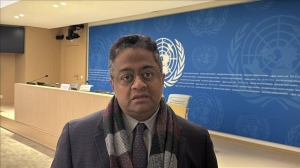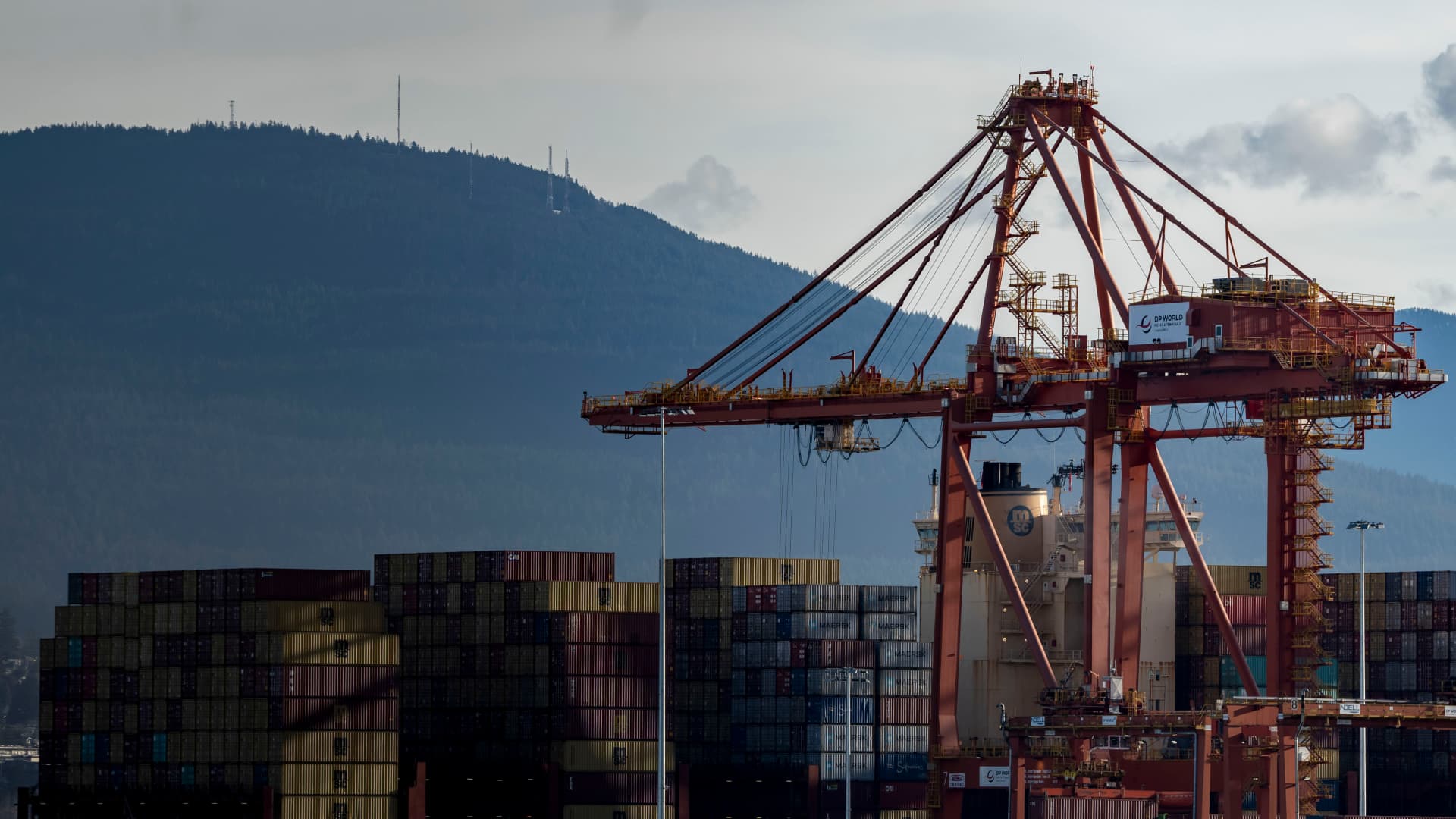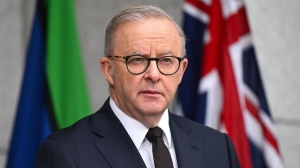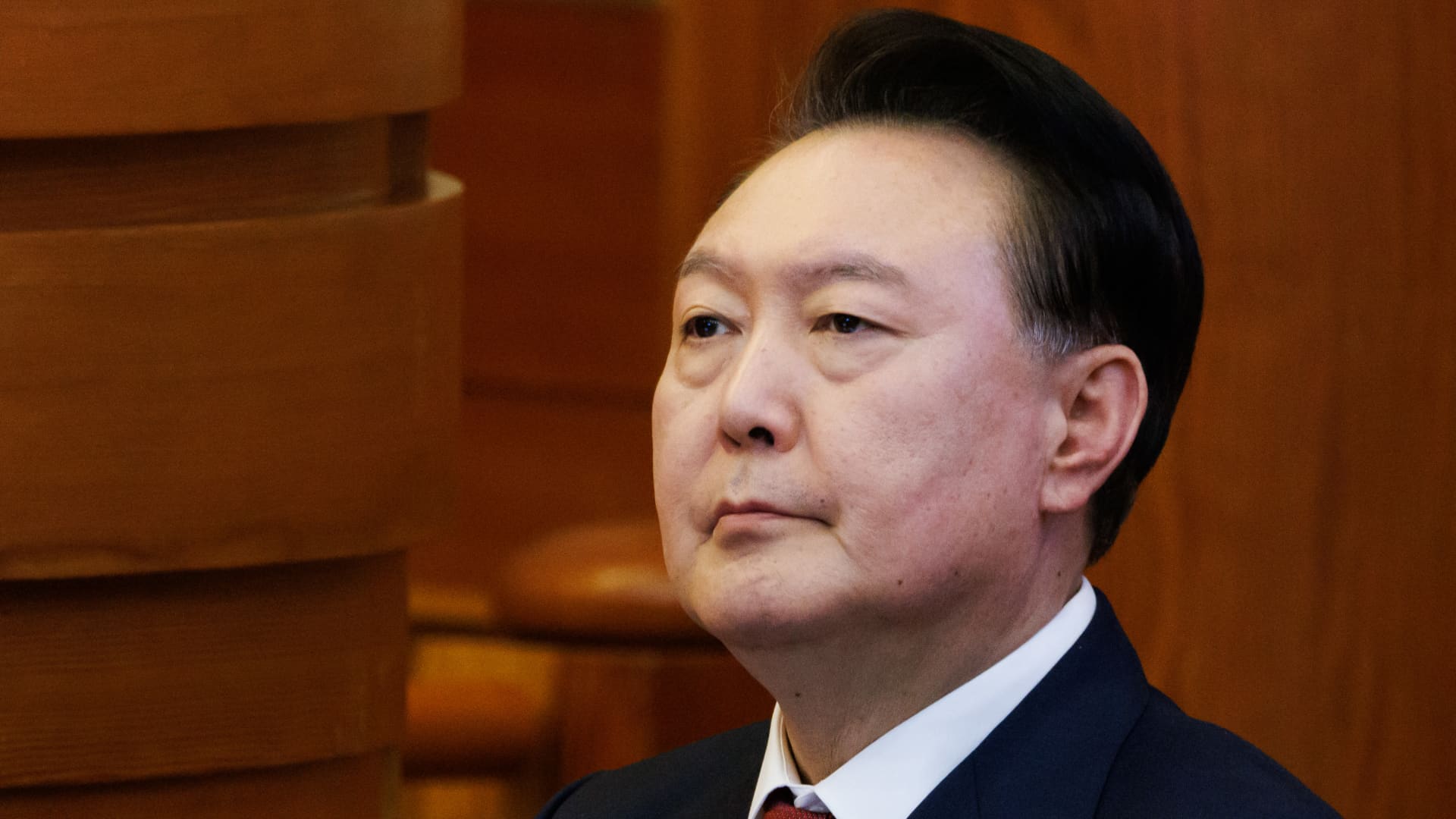Iran vs Israel: A direct slap on the face of Israel, Russian Foreign Minister Sergei Lavrov has warned Tel Aviv in the most unambiguous language yet that Israel should not even dare dream of attacking Iran. Addressing a press conference in Vientiane, Laos, Lavrov strongly condemned the Western countries who have been fueling tensions in the Middle East with unconditional support for Israel and have termed them as “cowboys of international relations“. Lavrov’s words add a new complexity layer to the volatile dynamics in the region. His last speech was seen by many as Russia’s clearest signal yet to Israel to avoid escalating its conflict with Iran.
Table of Contents: Iran vs Israel
Israeli-Iranian Conflict: Escalating Tensions
A long shadow conflict has meant that the two nations have been trapped in a subliminal war across the Middle East for many years. For Israel, Tehran’s nuclear ambitions, together with its support for proxy groups like Hezbollah that directly threaten Israeli security, have remained its topmost threat. Iran has often condemned Israeli actions in Palestine and its occupation of territories in Lebanon and Syria.
The most recent escalation in the conflict came following Iran’s missile strikes on Israeli military positions in reprisal against an alleged Israeli attack on Iranian military personnel in Syria. In response, Netanyahu, the Prime Minister of Israel, issued a stern warning that stated the nation would “pay” for its actions. Still, despite all this posturing, Israel’s security cabinet convened last October 10 to consider a retaliatory strike on Iran, yet so far, no clear military move has been made.
The general inability to retaliate may be more broadly wrapped up in the geopolitical considerations of the United States, Russia, and other global players. Israeli Defense Minister Yoav Gallant has already begun communicating with U.S. officials on the best way to react, but so far, no strategy has been agreed upon. The U.S. has continuously proved to be a reliable ally of Israel in the region. Still, the Biden administration is at the same time fearful that it could trigger a wider war in the Middle East, which would be disastrous for the world at large.
Russia’s Strategic Position: Balancing Chaos and Stability
The Israel-Iran conflict is an opportunity and a dilemma for Russia: Russia has long argued to position itself as one of the world’s most important powers in the Middle East, often playing the role of peacemaker between conflicting parties. Under Vladimir Putin, Russia has pitched a “multipolar world” against the global order from the U.S., thus placing it on the side of regional diplomacy and stability. All that, however, makes Moscow’s growing military dependence on Iran while it wages its war in Ukraine all the more complicated insofar as its maintaining neutrality in the conflict between Israel and Iran is concerned.
Since the invasion of Ukraine, it has been seen that Russia has lately been turning to asking for military assistance from Iran, especially in its efforts to acquire drones and other weapons. Iranian drones have proven to be very important in sustaining Russian forces in Ukraine, thereby making it much dependent on them and drawing itself closer to the interests that Tehran has tried to present in the Middle East. For this reason, Russia has become more outspoken in opposing Israeli military actions targeting Iran’s position in the region.
According to analysts, this is in line with Russia’s desire to maintain control over the chaos in the Middle East without allowing it to spiral into full-scale war. “Russia benefits from the chaos in the region because it distracts the U.S. from focusing on Ukraine,” said Ruslan Suleymanov, a Middle East specialist based in Baku, Azerbaijan. However, Suleymanov also stressed that Moscow is not interested in a general war between Israel and Iran, which may destabilize the whole region and eventually involve Russia in a deeper conflict.
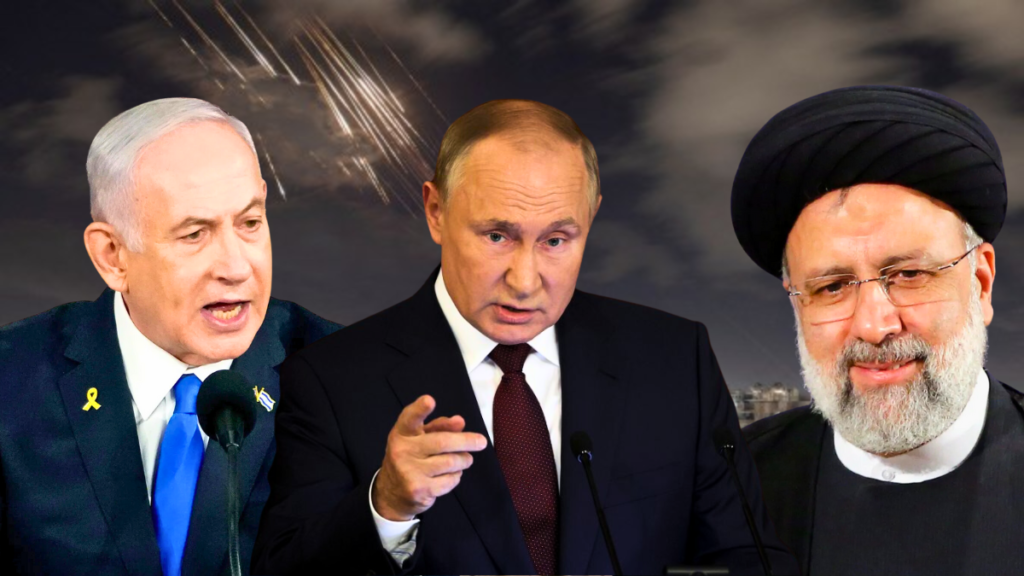
Russia’s Interests in Syria and Lebanon
Strategic interests in Syria, mainly because of the deep involvement of Russian forces since 2015 in supporting the regime of Syrian President Bashar al-Assad, make up part of Moscow’s resistance to Israeli military actions. Economic interests, in particular, on Russia’s part regarding Syria’s oil and gas sector, make stability in that region important for Moscow as well.
Even though it is working closely with Iran and Hezbollah in maintaining the Assad regime, Russia has been interested in maintaining a kind of balance act with Israel. There is an unspoken agreement between Russia and Israel that allows Israeli forces to conduct limited strikes on Iranian and Hezbollah targets in Syria without directly challenging Russian military assets. With the increasing tensions between Israel and Iran, it becomes increasingly difficult to maintain this delicate balance.
The situation is no less complex for Russia in Lebanon than it is elsewhere, where Hezbollah wields great political and military power. While Moscow has little direct stake in Lebanon, it does have historical relationships with Lebanon’s Shia and Orthodox Christian communities of which are still somewhat sympathetic to Russia, primarily because it supports Palestine and the region’s opposition to U.S. hegemony.
This is a very complicated history between Russia and Hezbollah, dating back to the Lebanese Civil War when, according to Moscow, Hezbollah had taken Soviet diplomats hostages to provoke Moscow.
Both parties have so far succeeded in creating a mutually workable relationship, but complications still abound, especially about the presence of Hezbollah in Syria where it has from time to time found itself in clashes with Israeli troops.
The Diplomatic Game by Lavrov: How Very Realistic Is This?
Lavrov’s word of caution to Israel can be counted as a part of the broader strategy adopted by Russia for making itself a principal actor in conflict resolution in the Middle East-not war. Officially denouncing the actions of Israelis and urging restraint on them are two steps Moscow has been taking lately to act as a responsible power committed to stability in the region. That said, however, this strategy runs a risk of exerting additional strain on relations with Israel, who yet have not yet officially supported Ukraine in its war against Russia so far.
Even while condemning Israel’s moves, Russia has been careful not to fully take Iran’s side, as that is commonly known to be the backer of the conflict. In April, when relations between Israel and Iran came near to an all-out war, Moscow called on both countries to take a step back from an all-out conflict, and understandably so because it does not want to be sucked into a wider conflict in the region. Analysts argue that though Russia is willing to work with Iran in the matter of military operations in Ukraine, it does not want the whole Middle East to turn into chaos, while its strategic interests are at stake.
Another tone is the reminder Russia gives to Israel
Moscow still is an important actor in the Middle East and has the levers to influence the most influential actors in the region. Whether Israeli leadership takes Lavrov’s words and warnings seriously remains to be seen, but the bottom line is clear: Russia is listening, and its actions will further escalate once its interests are perceived to be threatened.
Conclusion: A Region on the Brink
As Israel and Iran inch closer to confrontation, the intervention by external powers such as Russia and the United States becomes vital. For now, it seems Israel and Iran are bating each other not to unleash full-scale war on each other, but the situation is anything but safe. Lavrov’s warning adds on to the precarious nature of the moment and how diplomacy fails to keep conflicts under control.
Russia, with its deep connections to both Iran and Israel’s adversaries in the region, is at a crossroads. It seeks to maintain a veneer of neutrality, but its reliance on Iranian military aid and strategic interest in Syria and Lebanon make it an essential player in the unfolding drama. Whether Moscow can walk this tightrope remains to be seen, but one thing is for sure: the stakes have never been this high in the Middle East, and the world is watching closely.
Disclaimer
The content on this platform, including articles and images, is sourced from various reputable news websites, publications, and publicly available information across the internet. We do not create these stories or images independently, nor do we claim ownership of the original material. All content is provided for educational and informational purposes only, aiming to offer a broader understanding of global events. We are not responsible for the accuracy, reliability, or validity of the information or images presented. Any reliance on this content is at the user’s discretion.
Tags: Iran vs Israel, Iran vs Israel, Iran vs Israel, Iran vs Israel, Iran vs Israel, Iran vs Israel

